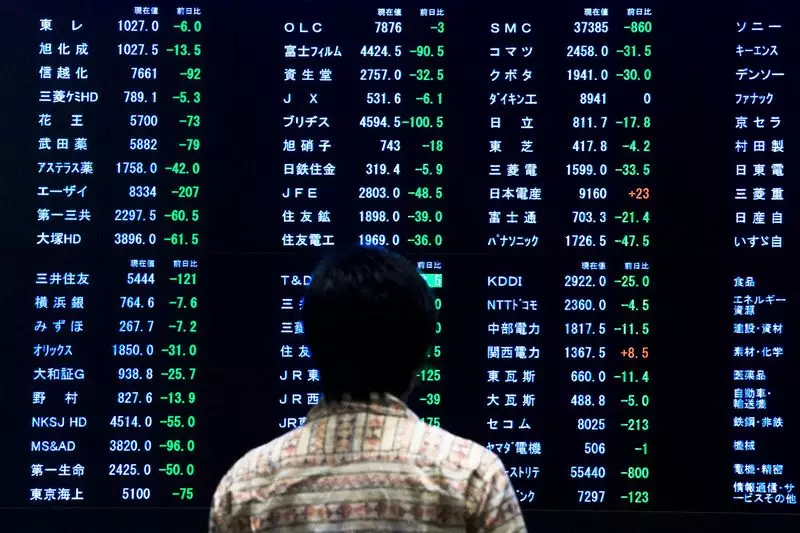In recent trading sessions, Asian stock markets have exhibited a mixed bag of performance fueled by varying economic indicators and political unrest in the region. Particularly notable is the robust recovery of Japanese markets, propelled by an unexpected spike in inflation figures. In stark contrast, South Korean shares exhibited a significant downturn, reflecting the ongoing political crisis that has gripped the nation. This article delves into the nuances of these trends, exploring the implications for investors and the broader economic landscape.
The Japanese Nikkei 225 soared by 1.5% on Friday, which can be attributed to a stronger-than-anticipated inflation reading from Tokyo. The recent Consumer Price Index (CPI) data indicated that inflation had outpaced expectations, suggesting growing price pressures within the economy. This development has stirred discussions regarding potential interest rate hikes by the Bank of Japan (BoJ). Analysts note that several policymakers within the BoJ have hinted at a favorable environment for adjusting rates in the near future, with some outright predicting action would be taken shortly.
Additionally, Japan’s broader economic indicators presented a mixed picture. Despite a concerning decline in manufacturing output, this contraction was slower than previously estimated, hinting at a degree of resilience amidst external challenges. The automotive sector, particularly stocks like Toyota, experienced uptrends, partly influenced by a weaker yen that made exports more competitive.
In the neighboring Chinese markets, both the Shanghai Composite and Shanghai Shenzhen CSI 300 indexes reflected moderate gains of 0.3% and 0.4%, respectively. However, the Chinese economy faces its own set of challenges. Recent reports highlighted a reduction in industrial profits, although the decline was less severe than anticipated. This offers a silver lining, suggesting some stabilization in a sector that has faced significant pressures from subdued domestic demand.
Despite these hurdles, the World Bank has revised its growth forecast for China for 2024 and 2025 upwards. Nevertheless, key challenges remain, such as weak household and business confidence, which continue to undermine economic recovery. Investors are now closely monitoring Beijing’s fiscal policies as the government is expected to increase spending to bolster growth in the face of these obstacles.
Perhaps the most unsettling developments originate from South Korea, where the KOSPI index has plunged over 1.5%, marking its third consecutive day of losses. The backdrop for this downturn involves a political crisis that has emerged surrounding Prime Minister Han Duck-soo, who faces an impeachment vote amidst turmoil over a controversial martial law decree by President Yoon Suk Yeol. This political instability raises significant concerns regarding South Korea’s democratic integrity and has broader implications for investor confidence.
The unrest has compelled international observers and allies to express worries regarding South Korea’s governance, casting doubt on the nation’s political stability. Investors are wary, and market sentiment is jeopardized as the uncertainty continues to unfold.
While Japan and China show signs of variable growth trajectories, the overall sentiment in Asia is underscored by the amplification of local challenges. Australia’s S&P/ASX 200 managed a 0.4% increase while India’s Nifty 50 remained relatively stable. Conversely, Malaysia’s FTSE KLCI index has shown promising gains of over 1%, illustrating the divergent paths of regional economies.
With markets currently in flux, investors are advised to remain vigilant and informed on regional developments, especially in light of upcoming fiscal stimuli anticipated from the Chinese government. Furthermore, as the political landscape continues to evolve in South Korea, the emphasis will be on stroke resilience amidst adversity.
While some Asian markets are experiencing positive momentum, the overall economic picture is complex and undergoing transformation. Stakeholders must navigate these dynamics judiciously, keeping an astute eye on political developments and economic indicators across the region.

